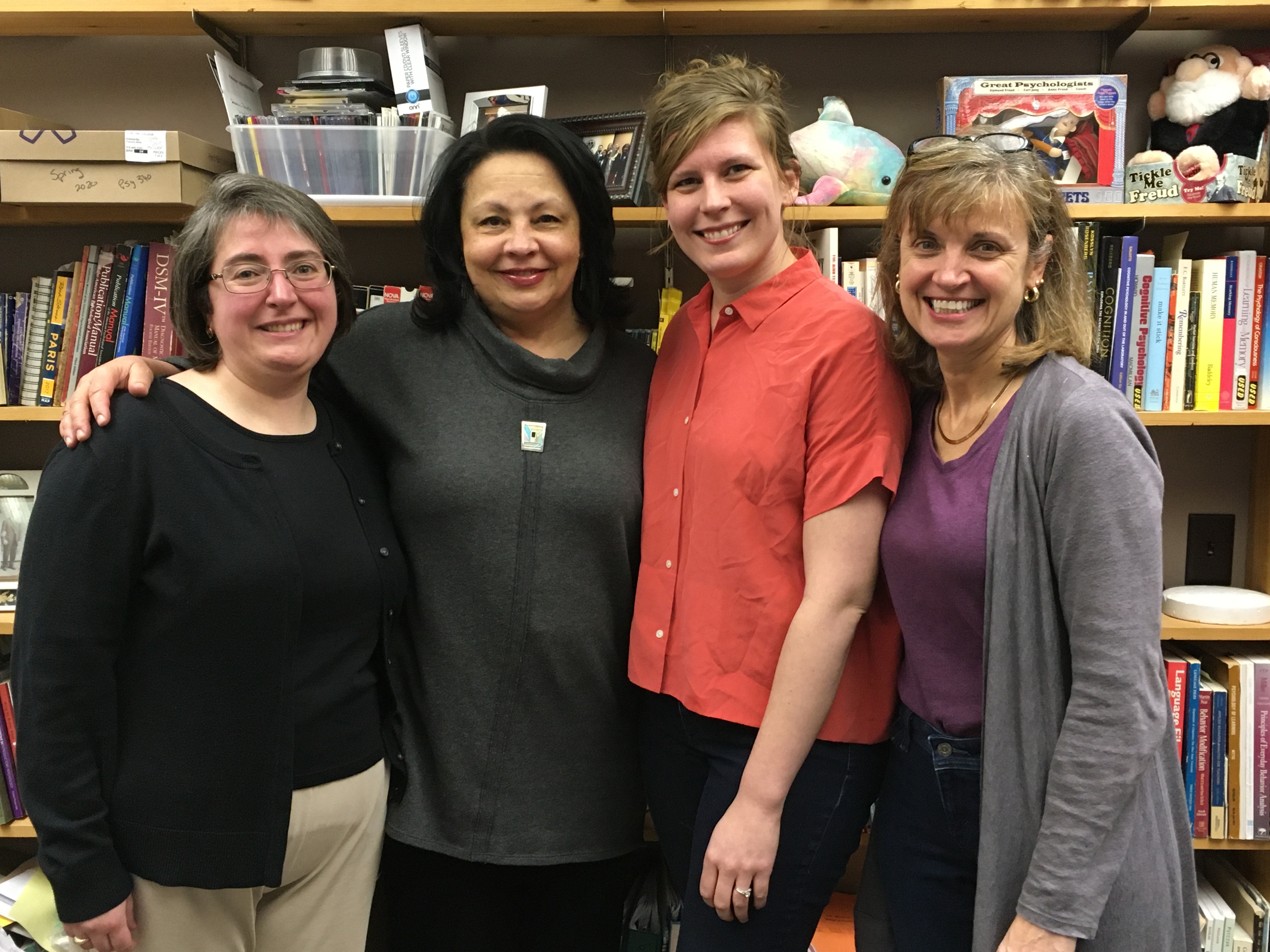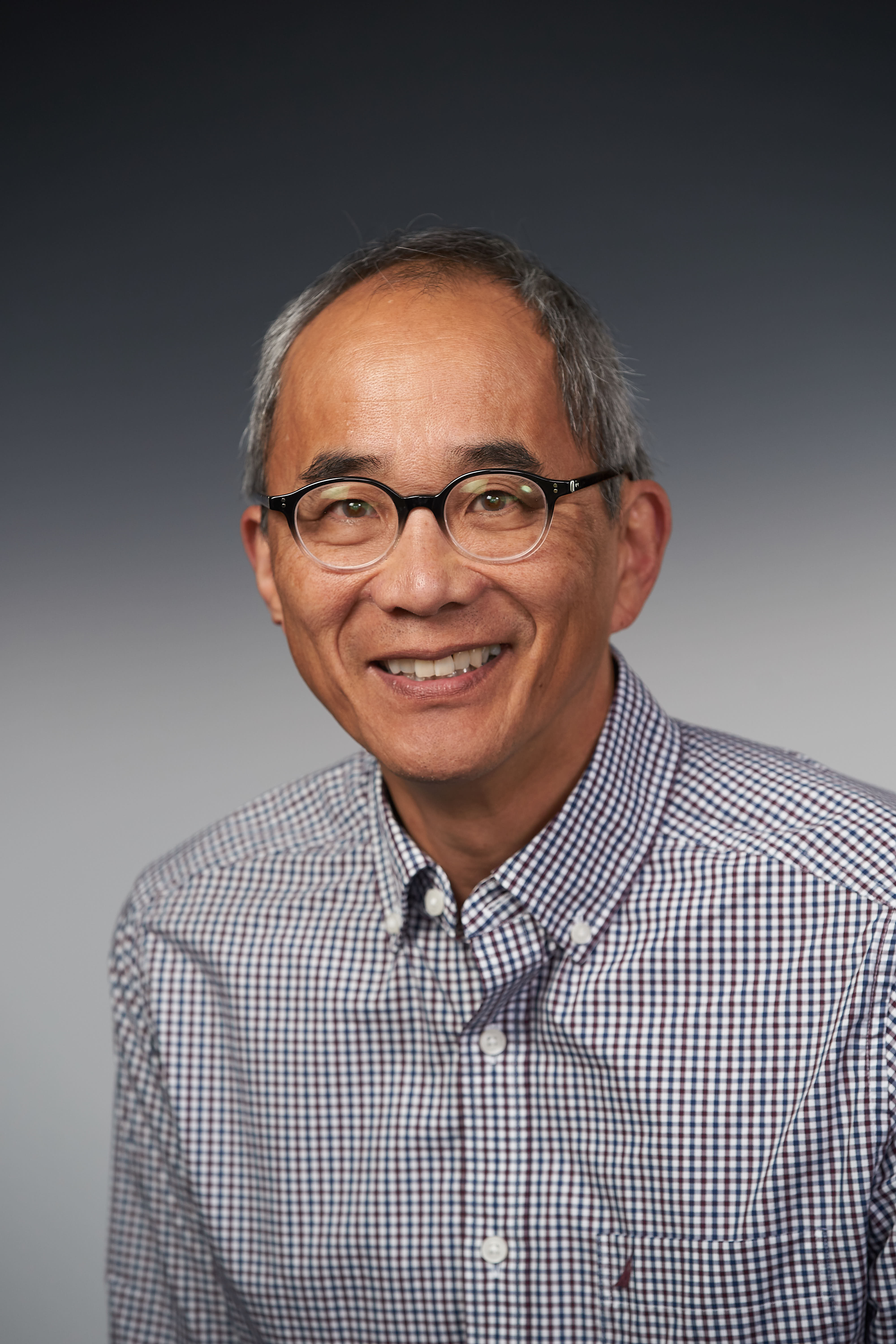Project Timeline: Begin in June 2019, with work ending by May 2020. Implementation would begin in August 2020.
Project Description: Re-imagine the way the Psychology Department assesses all three outcomes areas. This will be accomplished through the development of a three-part series of assessment exams (entry, mid-point, and exit) that are NOT course-embedded and will better evaluate students' progress across the outcome areas. These exams should replace the current course-embedded evaluations and provide better evidence of increasing student competence. The exams will be uniquely generated for each student via computer from a large test bank of questions that will be created on relevant topics by the faculty.

Status: Over the summer, Dr. Christina Michaelson, Dr. Monica Sylvia, Dr. Theresa White, and Dr. Whitney Wood met regularly to discuss a strategy for developing a new three-part series of exams for Student Learning Assessment (SLA) in the Department of Psychology.Our SLA would occur over three timepoints: (1) when students began at Le Moyne, (2) when they were at the end of sophomore or beginning of junior year, and (3) before graduation. This exam needed to consist of closed-ended questions that could be administered via CANVAS, which would enable us to generate unique tests that pulled from a large, common test bank. Each exam would continue to assess our departmental outcome components (Knowledge Outcome, Skill Development Outcomes, and Ways of Thinking/Disposition Outcomes).Over the course of the summer, we developed a test bank of roughly 360 questions, from which unique 60-item tests could be drawn.We believe that this size of test bank is substantial enough to support the 60-100 Psychology majors who would be taking the test at three time points while they are at Le Moyne.The test bank is carefully structured so that the questions fall into each outcome as follows:
|
Outcome
|
Domain
|
# Questions
|
|
Knowledge 1
|
Social/Personality
|
5
|
|
Knowledge 1
|
Developmental
|
5
|
|
Knowledge 1
|
Clinical
|
5
|
|
Knowledge 1
|
Biological
|
5
|
|
Knowledge 1
|
Cognitive
|
5
|
|
Knowledge 2
|
Career
|
4
|
|
Skill 1
|
Applied Research - Correlational Studies
|
4
|
|
Skill 1
|
Applied Research - Causative Studies
|
4
|
|
Skill 2
|
APA- In-text Citations
|
4
|
|
Skill 2
|
APA - References
|
3
|
|
Thinking/Dispositional 1
|
Critical Thinking - Counter-arguments
|
4
|
|
Thinking/Dispositional 1
|
Critical Thinking - Source Evaluations
|
3
|
|
Thinking/Dispositional 2
|
Ethics - Research
|
5
|
We each wrote a separate section of the test, so afterwards, we took the tests ourselves as a first pilot (and check for typos).On the basis of this self-testing and editing, we revised the preliminary test bank considerably.We have now asked our colleagues in the department to test all of the questions in the bank, and to give us feedback on the questions.We anticipate that there will be some changes, but that the bulk of the test bank will be acceptable.
We have met with Royce Roberson in IT for advice on the construction and formatting of the test bank.We will continue to liaise with Royce as we move through this project, particularly in terms of a strategy for collecting and analyzing the resultant data.
We met with Allison Farrell and Mary Schad regarding the collection of data from the first year students who will begin in the Fall of 2020.We intend to meet again as a group to consider the possibilities raised by that meeting, as well as the procedures necessary to assess the Sophomores and Seniors.
Project Timeline: Summer-Fall, 2019, on-going

Project Description: In 2019, the Department of Anthropology, Criminology, and Sociology embarked on a series of conversations designed to bring the curriculum more in line with national standards and best practices. These conversations were guided by a recent publication by the American Sociological Association, The Sociology Major in the Changing Landscape of Higher Education (Pike et al., 2017). During the summer, 2019, Dr. Chin generated a series of model curricula that reflected the recommendations of the external reviewers from the previous year’s program review. The department plans to submit these revisions to the curriculum committee to be available to students in 2020-21.
Status: This project is also on-going.
- Using the Sweet and Ferguson Curriculum Mapping Tool, Dr. Chin completed a mapping of the sociology curriculum, including enrollments and frequency of offerings. In order to see which courses met the curricular SLOs and the SLOs from the “national standards” as articulated in the Sociology Literacy Framework (Ferguson and Carbonaro), it became apparent that courses with multiple sections had inconsistent SLOs in their syllabi.
- The Curriculum Mapping Tool requires that curricular SLOs be mapped to each course, when relevant. Dr. Chin completed this task but they need to be confirmed by each instructor. This will be conducted by an asynchronous discussion during the early part of the Fall 2019 semester.
- When the Sweet and Ferguson Curriculum Mapping Tool is complete, it will be sent it to Steve Sweet who will return a custom report. This report will inform our next steps.
- The department will conduct discussions involving all stakeholders to standardize the SLOs in all sections of SOC101, ANT101, and CJS101. This is on the agenda for Fall department meetings.
In the Fall of 2019, the Provost’s Advisory Council on Diversity and Inclusion invited members of
the Le Moyne faculty to participate in a series of discussions about pedagogies of inclusion.
The Institutional Learning Assessment Committee offered stipends of $500 for each participant.
Ten instructors from across the campus participated, meeting monthly from November through
May. At each meeting, the reading group discussed an article about various practices and
approaches intended to increase student participation, engagement, and learning for students
from all backgrounds and with differing abilities. Some of the pedagogies and practices studied
included Universal Design for Learning, making visible the culture of power, and scaffolding to
build capacity for discussion (even of divisive topics).
At the end of the academic year, each participant laid out a plan to change some aspect of their
teaching during the Fall 2020 semester. This coincided with the need to use remote learning in
order to respond to the COVID pandemic, but participants were able to follow out their plans
and many found that the innovations they had chosen were helpful in the virtual environment.
After completing the Fall semester, each participant reflected on and assessed the value of the
changes they had made and the contribution the reading group materials had made to their
pedagogy. In response to the question “How satisfied were you with the changes you made?”
the average response was satisfied, with all but one participant saying they were satisfied or
highly satisfied. One respondent was neutral on this question.
In the qualitative responses, all participants indicated that their students seemed to benefit from
the changes made. As they reflected, all but one participant indicated that they felt the changes
were good and the room for improvement they saw was to further develop the new strategies
they had added. One participant indicated that they may have given the students too many
choices, leading to confusion.
Some sample comments from the reflections are:
“I think that all students had improved outcomes, not just those who might have had challenges
otherwise.”
“One student of color in particular I saw rising to truly great comprehension and writing. He
came to meetings, discussed the concepts and put together great ideas. More than giving him
the opportunity to shine, I had given myself the opportunity to see how smart he was. Formative
assessments, rather than punitive ones, transformed our relationship and made me a better
teacher.”
“Students enjoyed the option to upload a media comment very much, several used it throughout
the semester. Student feedback indicates that they appreciated a sense of community and my
efforts to make the material accessible to everyone.”